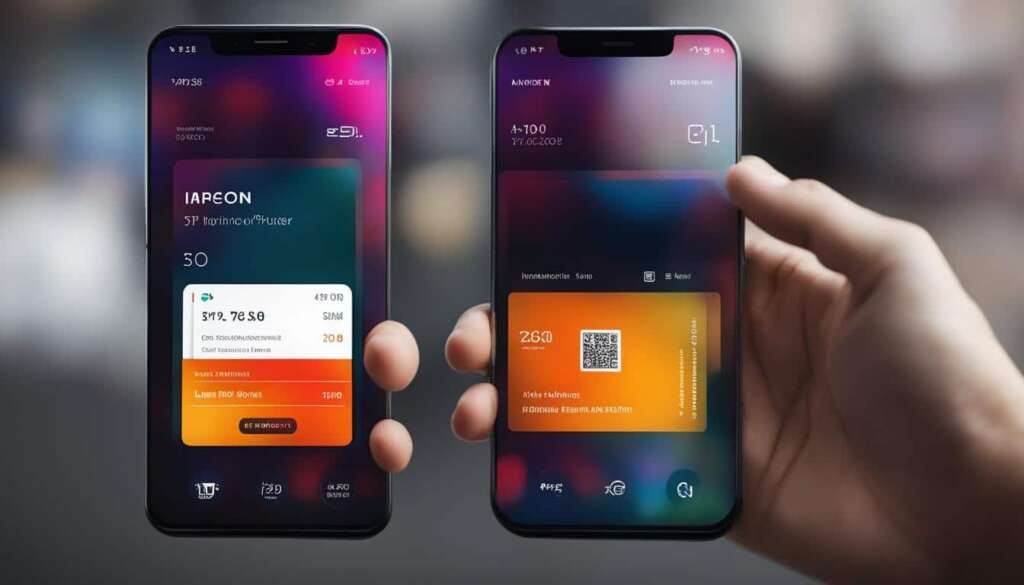Table of Contents
Navigating the complexities of event promotion can be a daunting task, especially if you’re an event organizer or manage a business that regularly hosts events. The landscape of event advertising is intricate, requiring a blend of strategy, creativity, and precision to captivate potential attendees.
Crafting a successful event advertising campaign is more than mere promotion. It’s a strategic endeavour that involves deeply connecting with your target audience, delivering a resonant message, and carefully choosing the platforms for optimal impact. In this article, you’ll learn the must-have factors for a winning event advertising campaign.
Clear Objectives
Establish clear, measurable objectives for a successful event advertising campaign to guide you in making strategic decisions and actions. Examples include boosting ticket sales, increasing brand visibility, or engaging a targeted audience segment to direct the campaign effectively. Aim for specific, measurable, achievable, relevant, and time-bound or SMART objectives to ensure they’re practical, align with organizational goals, and enable clear impact evaluation.
Consulting the best event companies in Manchester or your area can significantly contribute to achieving these objectives. These companies come equipped with the expertise, resources, and network to design and execute a campaign that resonates with your audience and meets your specific goals.
Understanding Your Audience
Understanding your audience involves delving deep into their interests, behaviours, preferences, and demographics to accurately outline the individuals you’re targeting. In that way, you can develop audience personas for effective audience segmentation.
Creating messages that connect with these personas and choosing the right channels for distribution are crucial steps. The right message needs to reach the right people through the right platforms to spark interest and drive engagement.
Crafting Compelling Content
Crafting compelling content elevates beyond basic messaging, weaving a narrative that emotionally connects with potential attendees. The content must be relevant, align with your brand’s voice, and engage deeply.
Storytelling transforms your event from a mere date to a compelling experience, underscoring its uniqueness and value and making it an irresistible opportunity. Videos that showcase the event’s highlights, testimonials from previous attendees, or a sneak peek of what to expect can be highly engaging. These are shareable on social media, email newsletters, and websites.
Furthermore, personalized email invites, updates, and reminders can keep your event at the forefront of your mind. Segment your email list to tailor the message for different groups for a more personalized approach. Design posters, flyers, and digital graphics should be visually striking and embody the essence of your event. These can be used across various platforms to maintain brand consistency and recognition.
Choosing the Right Channels
Success in today’s digital landscape hinges on selecting advertising channels where your target audience is most active. From the dynamic realms of social media platforms—each with its unique audience and style of engagement—to the personalized touch of email marketing, the direct appeal of content marketing, the precision of paid search, and the broad reach of traditional media like TV, radio, and print, the options are plentiful.
Selecting the right channels should align with your campaign’s goals and your audience’s preferences. Social media allows targeted engagement and broad reach, while email marketing offers direct, personalized communication.
Content marketing builds trust through valuable resources, and paid search targets users with the intent to find similar events, offering quick visibility. Traditional media, despite its cost, can significantly broaden its reach. An effective strategy usually combines digital and traditional outlets to ensure comprehensive coverage and enhance impact.

Utilizing Social Media Effectively
Social media excels in promoting events by encouraging shareable content that resonates with audiences, such as humorous, inspirational, or informative posts. This approach increases the chances of organic reach as content gets shared beyond your immediate network, enhancing event visibility.
Engaging your audience with compelling images, videos, and stories about your event fosters community and leverages word-of-mouth, a potent digital marketing tool. Effective social media use is more than just ads. Social media marketing for events is about crafting interactive experiences that transform viewers into active event promoters.
Leveraging Influencers and Partnerships
Teaming up with influencers and forming strategic partnerships can really take your event’s advertising to the next level. Influencer marketing works because influencers already have the trust of their followers, which means they can help spread the word about your event far and wide, giving it a boost in both reach and credibility. Selecting influencers whose values and audience align with your event ensures your message authentically resonates with potential attendees.
Partnering with brands or organizations that target similar audiences can significantly boost your event’s visibility. Collaborations, such as co-hosting or cross-promoting, mutually expand reach by leveraging each other’s follower bases. Successful partnerships depend on aligning with those whose values and audience match yours, creating a synergy that enhances promotion. These strategies can elevate your event’s profile, attract a wider audience, and add authenticity to your advertising efforts, which enhance your online branding.
Perfecting the Landing Experience
Perfecting the landing experience is essential to your event’s advertising strategy, directing potential attendees to a page where they can learn more and decide to purchase tickets. This ensures that your advertising efforts effectively lead to conversions by making the information acquisition and ticket purchase process straightforward and reflective of your brand.
Ensuring your landing page or website is optimized for user experience is crucial. It should be mobile-friendly, catering to the many users accessing it via smartphones, and load quickly to prevent potential attendees from losing interest. By prioritizing these elements, you create a welcoming entry point for your event, encouraging visitors to move forward and secure their attendance.
Implementing a Retargeting Strategy
Implementing a retargeting strategy is a powerful way to re-engage individuals who have visited your event page but left without purchasing tickets. It’s common for users not to commit on their first visit, as they may need more time to decide or might get distracted. Retargeting works by tracking these visitors and then displaying your ads as they browse other parts of the internet, effectively bringing your event back to their attention.
These ads serve as reminders of your event, highlighting key attractions or offering limited-time deals that can create a sense of urgency. By keeping your event in the forefront of their minds, retargeting can gently push potential attendees from consideration to action. This strategy not only increases the chances of converting interested browsers into ticket buyers but also maximizes the ROI of your initial advertising efforts.
Monitoring and Adjusting in Real Time
The dynamic nature of digital advertising offers a significant advantage: the capability to monitor your campaign’s performance in real time and adapt accordingly. This agility is crucial for optimizing your event’s marketing efforts and ensuring the highest return on investment.
Monitoring key metrics like impressions, clicks, conversion rates, and ROI lets you identify what parts of your campaign are effective and which need improvement. This insight enables you to make informed adjustments, from refining ad copy to altering targeting strategies or revamping your creative approach.
Continuous optimization ensures your campaign stays in sync with your objectives and audience needs, enhancing its effectiveness. Being agile and ready to adapt based on real-time feedback not only boosts your current campaign but also enriches future ones, progressively increasing their success.
Use the Right Tools
Event marketing software streamlines event promotion, enhancing efficiency and impact. It supports targeted marketing campaigns by segmenting audiences for personalized engagement and boosting attendance likelihood.
Automated email marketing ensures timely communication, while social media integration facilitates promotion across platforms and direct ticket sales. Analytics features enable the measurement of campaign success, tracking registrations, sales, and engagement to refine strategies.
The software aids in creating professional event websites or landing pages easily, incorporating SEO tools for better online visibility. It also offers networking and engagement tools for virtual and hybrid events, enriching the attendee experience. Mobile app integration provides attendees with convenient access to event information, enhancing engagement.
Additionally, the software assists in managing sponsorships, ensuring sponsors receive promised exposure, and streamlining registration and ticketing processes. This will make it easier for attendees to join.
Measuring Success and Learning for the Future
Evaluating the effectiveness of different channels and content types helps you understand where your marketing efforts were most successful and where there’s room for improvement. Did social media ads bring in the most attendees, or was email marketing more effective? Which messages or visuals saw the highest engagement rates?
Answering these questions provides a wealth of insights that you can apply to future campaigns. Learning from both the successes and shortcomings of your campaign equips you with the knowledge to make more informed decisions, refine your strategies, and achieve better outcomes in your next event advertising endeavour.
Conclusion
Crafting a successful event advertising campaign is an intricate endeavour that necessitates strategic planning, a profound grasp of your target audience, and a dedication to continuous optimization. Each campaign offers valuable lessons, providing insights that can enhance subsequent efforts. Staying adaptable, listening to your audience, and applying lessons learned are fundamental in evolving and refining your advertising strategy, ensuring each campaign is more successful than the last.













